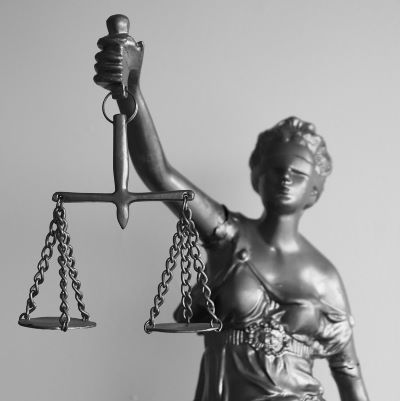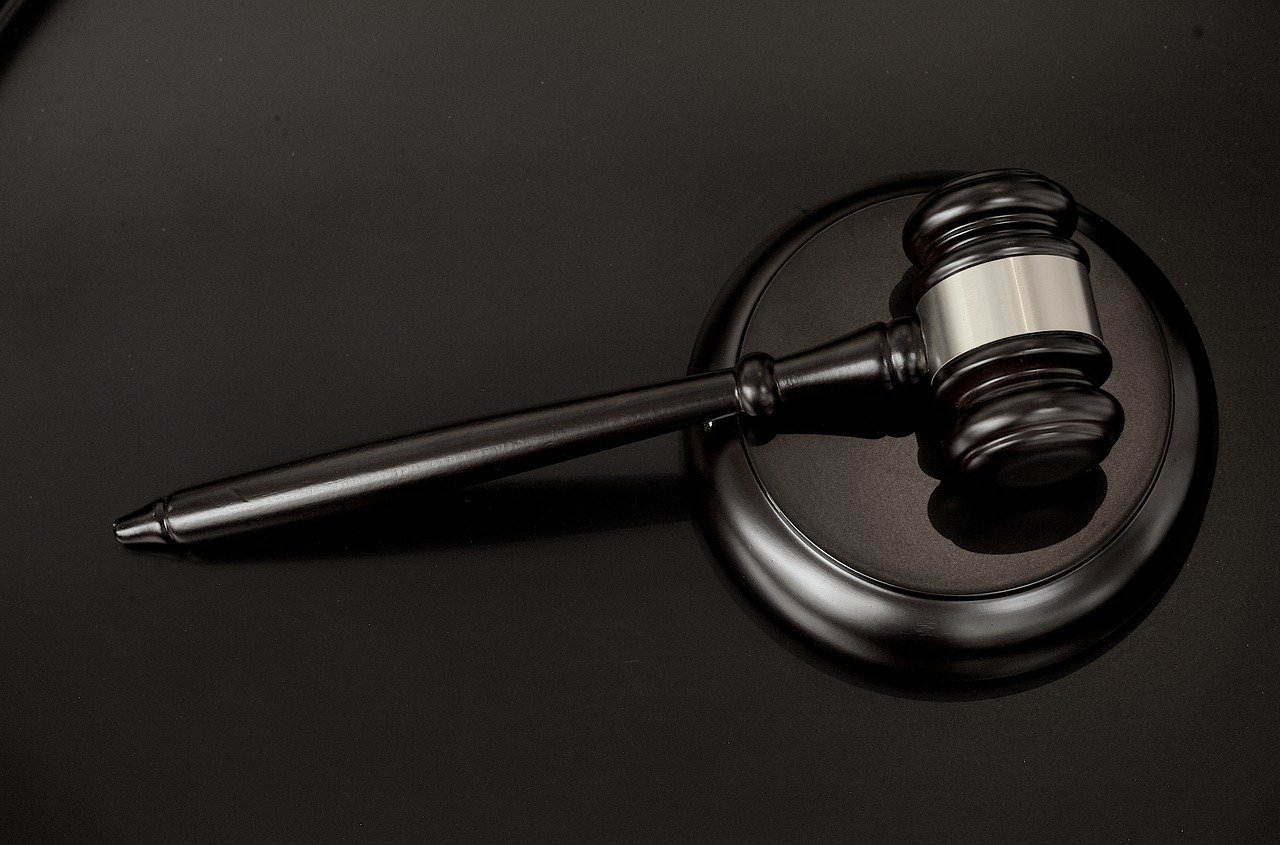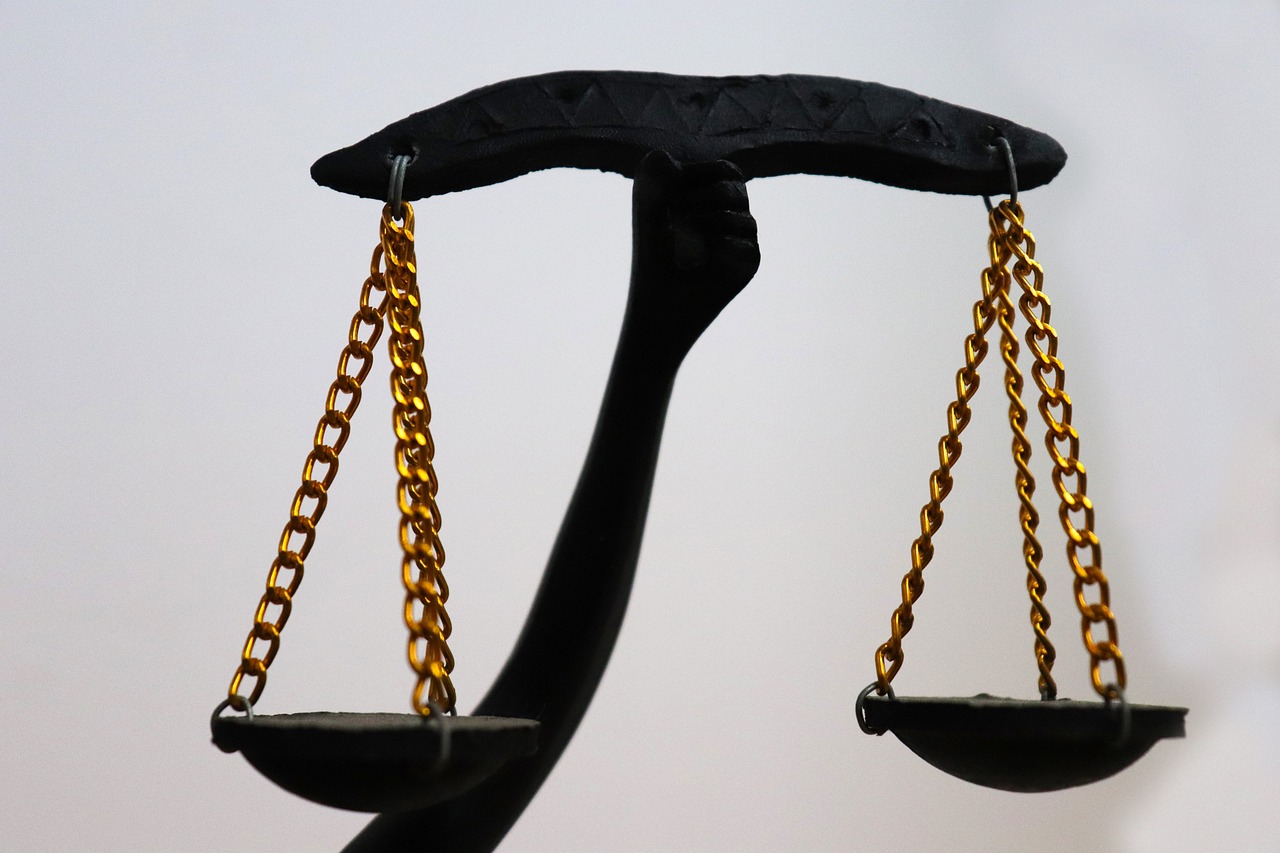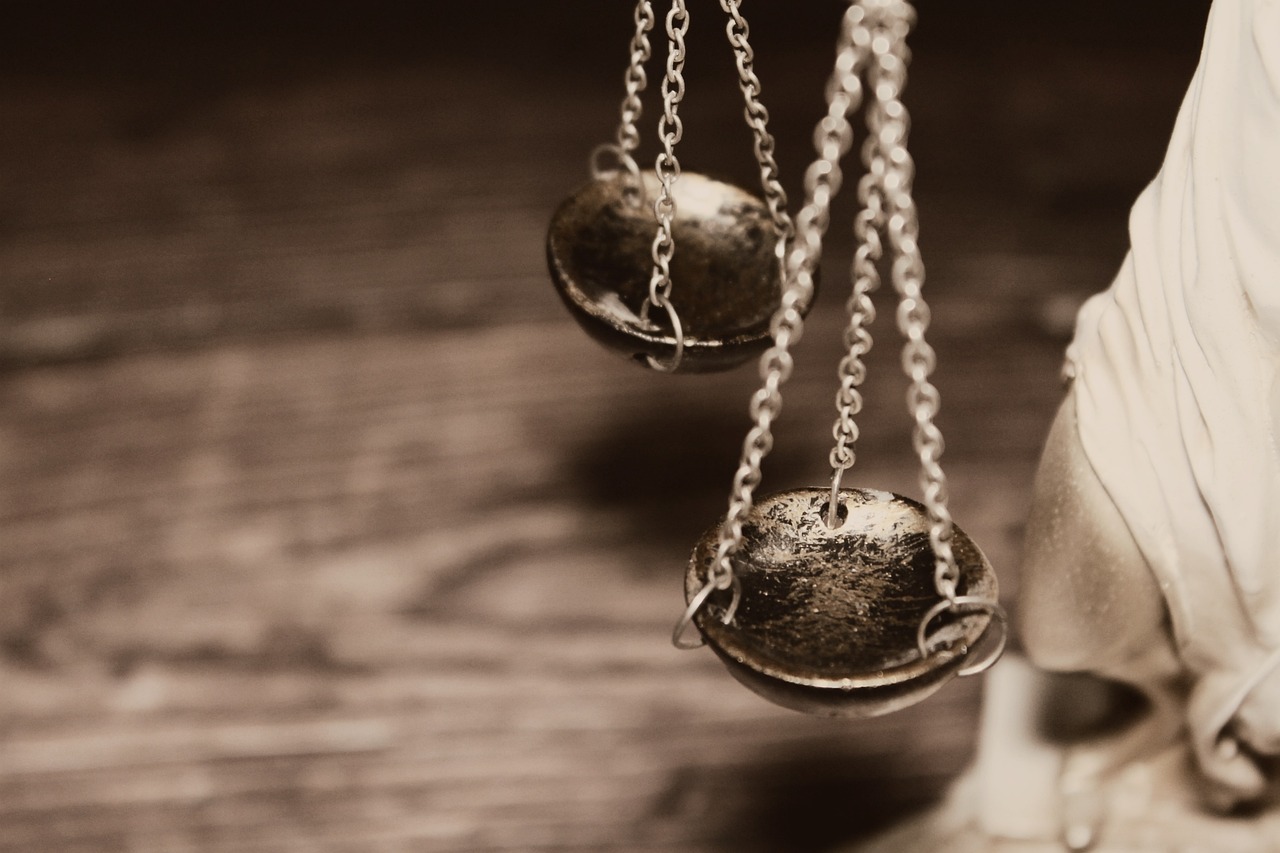
Zero Tolerance for Law Firm Malpractice
Law Firm Mal Practice” podcast delves into the intricate realm of legal ethics, examining cases of professional misconduct and negligence within law firms. Each episode dissects real-life scenarios, from breaches of client trust to mismanagement of cases, offering in-depth analysis and insights into the complexities of legal malpractice.
Hosted by seasoned legal experts and industry insiders, the podcast navigates through the nuances of ethical dilemmas, regulatory frameworks, and the consequences of malpractice. Whether you’re a legal professional, student, or simply intrigued by the legal world, “Law Firm Mal Practice” provides compelling narratives and valuable lessons on maintaining integrity and accountability in the legal profession.


Years of service


news and event
Stay updated on current affairs and happenings with our comprehensive coverage of news and events from around the world.
If you’ve received a traffic ticket in the Bronx, you’re likely looking for the best lawyers to help navigate the legal process and ensure your case is handled effectively. Traffic tickets may seem like a minor inconvenience, but they can lead to serious consequences, including fines, points on your driving record, and even a suspended license. Choosing the right attorney can make a significant difference in the outcome of your case. In this article, we’ll explore the Best lawyers for traffic tickets in the Bronx, highlighting what to look for in legal representation and how they can help you manage the complexities of traffic violations.
Traffic tickets in the Bronx can range from speeding violations to running a red light or failing to yield to pedestrians. Although these offenses may seem minor, they often carry hefty fines and can lead to increased insurance premiums. Additionally, certain violations may result in points being added to your license, which can eventually lead to suspension or revocation. This is why it is essential to seek the best lawyers for traffic tickets in the Bronx to help you fight the charges, negotiate a reduced penalty, or have the case dismissed altogether. The right lawyer will know how to challenge evidence, identify mistakes, and secure the best possible outcome for your situation.
When searching for the best lawyers for traffic tickets in the Bronx, it’s crucial to look for those who specialize in traffic law. Lawyers with experience handling traffic ticket cases are familiar with the intricacies of local traffic laws, court procedures, and the best strategies for achieving favorable results. Specialized attorneys are also more likely to have a track record of success in defending clients against traffic violations in the Bronx. They understand how to approach different types of cases, from minor infractions to more serious violations, and are equipped with the knowledge and skills necessary to protect your rights.
One of the key benefits of hiring an experienced traffic ticket lawyer is their ability to assess the circumstances surrounding your violation. They will carefully review the details of your ticket, the police report, and any other evidence that might impact your case. In some instances, the best lawyers for traffic tickets in the Bronx may identify errors or procedural issues that could lead to the dismissal of the ticket. For example, if the officer who issued the ticket made an error in recording your details or if the radar gun used to measure your speed was improperly calibrated, an experienced attorney can use this information to challenge the validity of the ticket.
Moreover, a skilled lawyer can negotiate with the prosecution to reduce the charges or penalties associated with your traffic violation. In the Bronx, many traffic cases are handled by the Department of Motor Vehicles (DMV), and a lawyer with strong negotiation skills can often secure a plea bargain that minimizes the impact on your driving record. For example, they might be able to reduce the number of points on your license, lower the fine, or even have the ticket dismissed altogether. This can be especially helpful if you are facing multiple violations or have a history of traffic offenses that could result in severe consequences.
Additionally, the best lawyers for traffic tickets in the Bronx understand the importance of timely action. New York has strict deadlines for contesting traffic tickets, and failing to take prompt action can result in automatic penalties. An experienced attorney will ensure that all necessary paperwork is filed on time, helping you avoid costly mistakes that could make your situation worse. Furthermore, many traffic ticket lawyers in the Bronx offer free consultations, so you can discuss your case with them before committing to any legal fees. This allows you to gauge whether their experience and approach align with your needs.
Another critical factor to consider when choosing the best lawyers for traffic tickets in the Bronx is their reputation. A lawyer with a strong track record of successful outcomes in traffic ticket cases is likely to have earned the trust and respect of clients and peers alike. Online reviews, testimonials, and referrals from friends or family members who have used the attorney’s services can provide valuable insight into their effectiveness. Be sure to research your potential lawyer’s background and credentials before making a decision. Many of the best traffic ticket lawyers in the Bronx offer their clients personalized attention, understanding the specific details of their case and tailoring their approach accordingly.
In addition to reputation and experience, consider the lawyer’s communication style and availability. You want a lawyer who will keep you informed throughout the process, explain your options clearly, and be responsive to your questions and concerns. A lawyer who is easily accessible and takes the time to understand your situation will make the legal process much less stressful. Clear communication is also essential if you’re trying to avoid going to court. Many traffic ticket lawyers in the Bronx work diligently to resolve cases without the need for a formal hearing, saving you time and money.
If you are facing a traffic ticket in the Bronx, it’s important to act quickly and seek legal representation as soon as possible. The best lawyers for traffic tickets in the Bronx will provide you with the knowledge, experience, and resources needed to protect your driving record, avoid excessive fines, and minimize the consequences of your violation. Whether you’re dealing with a minor speeding ticket or a more serious charge, having the right lawyer by your side can make all the difference in achieving the best possible outcome.
In conclusion, when facing a traffic ticket in the Bronx, selecting the best lawyer for the job can be the key to a favorable resolution. By working with a lawyer who specializes in traffic violations, you can ensure that your case is handled with expertise and care. With the right legal representation, you may be able to reduce fines, avoid points on your license, or even have the ticket dismissed altogether. Take the time to research and choose a lawyer who offers the experience, reputation, and commitment to securing the best result for your case.
The legal team at Moseley Collins Law negotiates with insurance companies to reach a settlement or verdict for clients’ losses and expenses. When necessary, they file personal injury and wrongful death lawsuits in local California civil courts. It is important for victims to document the accident scene and their injuries as thoroughly as possible. A Moseley Collins Law Sacramento semi-truck crash attorney can help to gather evidence such as black box data, trucking logs and expert testimony. In addition, he or she can prevent trucking companies from quickly fixing or disposing of harmed vehicles, which could compromise critical evidence. An experienced lawyer can also secure compensation for losses caused by the accident, including loss of consortium and punitive damages.
Severe truck collisions create lifelong physical, emotional, and financial repercussions. Achieving fair compensation in this challenging legal landscape requires expert guidance.
Damages
A collision with a semi truck can cause significant damages. An experienced attorney can assist victims with seeking fair compensation for these expenses. Damages may include medical bills (both past and future), lost income, property damage, pain & suffering, loss of enjoyment of life and punitive damages in certain circumstances.
A knowledgeable lawyer can ensure that all eligible expenses are included in the final settlement. He or she can also protect victims from unfair settlement offers made by trucking companies that aim to limit their payouts.
Insurance
Each year numerous individuals in the Antelope area contact Moseley Collins Law for help with legitimate truck accident injury claims. Pursuing fair compensation for your damages requires a thorough understanding of California’s trucking laws and procedures. An experienced freight accident lawyer can guide you through these complexities.
Victims face significant expenses, including medical care and property damage costs. They also lose income and suffer emotional trauma. An accomplished truck crash attorney can help you amass the compensation you need to pay your bills and rebuild your life.
The aggressive legal advocates at Moseley Collins Law can negotiate with insurers and fight for justice in court. They prioritize client communication and work hard to ensure victims receive fair compensation. Their experience and expertise in handling freight accidents maximizes your chances of a positive case outcome. They can also advise you on the statute of limitations that affects when you can file a claim. If you do not act quickly, your rights to recover compensation may be lost.
Statute of Limitations
A knowledgeable truck accident lawyer in Sacramento will help protect your civil rights, navigate the legal process and ensure a fair settlement. They will gather evidence such as black box data, trucking logs and witness testimony, and may enlist experts including medical professionals and economic consultants.
Commercial truck accidents can be a lot more complex than standard automobile crashes, often with multiple liable parties. These could consist of the truck driver, their employer, the lorry manufacturer or maintenance business. It is important to identify all potentially responsible occasions so that the full amount of your compensation is recovered.
An experienced truck accident attorney will be familiar with local and state regulations, as well as federal laws governing the trucking industry. They will know how to effectively pursue all relevant parties, ensuring that you meet any applicable time limit to file your lawsuit. They will also take into account non-economic problems such as pain and suffering and loss of enjoyment of life to ensure that the amount offered reflects the total impact of your accident.
Consultation
Truck accidents often impose traumatic impact forces onto human bodies not designed to withstand them. They can cause catastrophic injuries with lifetime consequences, including medical expenses, lost income, property damage, emotional distress, and pain and suffering.
A knowledgeable Sacramento truck crash lawyer can help you pursue fair compensation for these damages by conducting a thorough investigation and identifying all liable parties. They will also handle all communications with insurance companies and legal adversaries, giving you peace of mind during an already taxing time.
An experienced attorney can also enlist expert witnesses to gather evidence and strengthen your case, such as accident reconstructionists and economic professionals. They will also fight to secure a fair settlement that compensates you for your medical bills, lost wages, and other expenses. They can also help you navigate California’s comparative negligence laws, which determine your victim recovery percentage based on your percentage of fault for the accident. Moreover, they can assess your medical records to verify the extent of your damages.
“Moseley Collins Law
980 9th St.
Sacramento, CA 95814
916-444-4444”
The legal profession stands as a bastion of justice and integrity, with attorneys entrusted to uphold the rule of law and protect their clients’ interests. However, amidst the complexities of legal practice, instances of malpractice can arise, casting shadows over the profession’s ethical standards. Law firm malpractice, characterized by negligent or unethical conduct, not only jeopardizes client trust but also undermines the foundations of the legal system. This article ventures into the intricate terrain of law firm malpractice, examining its root causes, far-reaching consequences, and the imperative need for preventive measures.
Understanding Law Firm Malpractice:
Law firm malpractice encompasses a spectrum of behaviors by legal practitioners that breach professional standards and result in harm or loss to clients. These behaviors may include:
1. Breach of Fiduciary Duty: Attorneys owe a fiduciary duty to act in the best interests of their clients. Breaching this duty through conflicts of interest, self-serving actions, or neglecting client welfare constitutes malpractice.
2. Incompetence or Negligence: Failure to perform legal duties with the requisite competence and diligence can lead to malpractice claims. This may involve inadequate legal research, missed deadlines, or substandard representation, resulting in adverse outcomes for clients.
3. Misrepresentation or Fraud: Deliberate misrepresentation of facts, fabrication of evidence, or misleading statements by attorneys can constitute malpractice, undermining the integrity of the legal process and causing harm to clients and other parties involved.
4. Conflict of Interest: Law firms must navigate complex ethical boundaries to avoid conflicts of interest that compromise their ability to represent clients effectively. Failure to disclose conflicts or representing conflicting interests can lead to malpractice allegations.
Consequences of Law Firm Malpractice:
The consequences of law firm malpractice reverberate across multiple dimensions, affecting clients, legal practitioners, and the broader legal community. For clients, malpractice can result in financial losses, adverse legal outcomes, and profound emotional distress. Trust in the legal system may erode, leading to skepticism and reluctance to seek legal assistance in the future.
Moreover, law firm malpractice tarnishes the reputation of the entire legal profession. Instances of malpractice undermine public confidence in the integrity and ethics of attorneys, potentially deterring individuals from seeking justice through legal channels. This erosion of trust not only impacts the malpracticing firm but also has cascading effects throughout the legal community.
Legal practitioners implicated in malpractice face professional and personal repercussions. In addition to potential disciplinary actions by state bar associations, such as license suspension or revocation, lawyers may experience irreparable damage to their professional reputation. Rebuilding trust and credibility after being associated with malpractice can be a daunting endeavor, impacting career trajectories and personal well-being.
Prevention Strategies:
Preventing law firm malpractice demands a proactive and comprehensive approach, encompassing ethical standards, risk management protocols, and ongoing professional development. Here are some strategies to mitigate the risk of malpractice:
1. Adherence to Ethical Guidelines: Law firms must prioritize adherence to the highest ethical standards, including integrity, honesty, and client confidentiality. Establishing clear ethical guidelines and providing regular training and oversight can help ensure compliance and prevent inadvertent violations.
2. Competence and Due Diligence: Attorneys must maintain competence in their respective areas of practice and exercise due diligence in representing clients. This includes staying abreast of legal developments, conducting thorough research, and seeking assistance or collaboration when facing unfamiliar or complex matters.
3. Conflict Checking Mechanisms: Implementing robust conflict checking mechanisms is essential to identifying and addressing conflicts of interest promptly. Utilizing technology solutions and maintaining comprehensive conflict databases can help law firms navigate ethical dilemmas and avoid malpractice allegations.
4. Communication and Transparency: Open communication with clients regarding case developments, potential risks, and legal strategies fosters trust and reduces the likelihood of misunderstandings or disputes. Lawyers should provide clear and transparent explanations of legal processes and decisions, empowering clients to make informed choices.
5. Continuous Improvement: Embracing a culture of continuous improvement enables law firms to adapt to evolving legal landscapes and emerging risks. Regularly reviewing and updating internal policies, procedures, and training programs ensures that attorneys remain vigilant against malpractice pitfalls.
Conclusion:
Law firm malpractice poses significant challenges to the legal profession, threatening client trust, professional integrity, and the credibility of the legal system. By understanding the root causes of malpractice and implementing proactive prevention strategies, law firms can mitigate risks and uphold the highest standards of ethical conduct and professionalism. Ultimately, fostering a culture of accountability, transparency, and continuous improvement is paramount to safeguarding the interests of clients and preserving the integrity of the legal profession.
In the complex and often high-stakes world of legal practice, the trust between clients and their attorneys is paramount. However, despite the rigorous training and ethical standards within the legal profession, instances of malpractice can occur, posing significant risks to both clients and practitioners alike. Law firm malpractice, characterized by negligent or unethical conduct, can have far-reaching consequences, ranging from financial loss to reputational damage. This article examines the nuances of law firm malpractice, delving into its causes, implications, and strategies for prevention.
Understanding Law Firm Malpractice:
Law firm malpractice encompasses a wide array of unethical or negligent behaviors by legal practitioners that result in harm or loss to their clients. These malpractices can manifest in various forms, including:
1. Breach of Fiduciary Duty: Attorneys are bound by a fiduciary duty to act in the best interests of their clients. Breaching this duty through conflicts of interest, self-serving actions, or prioritizing personal gain over client welfare constitutes malpractice.
2. Incompetence or Negligence: Failure to exercise the level of competence and diligence expected of a reasonable attorney can lead to malpractice claims. This may involve inadequate legal research, missed deadlines, or substandard representation, resulting in adverse outcomes for the client.
3. Misrepresentation or Fraud: Deliberate misrepresentation of facts, fabrication of evidence, or misleading statements by attorneys can constitute malpractice, undermining the integrity of the legal process and causing harm to clients and other parties involved.
4. Conflict of Interest: Law firms must navigate complex ethical boundaries to avoid conflicts of interest that compromise their ability to represent clients effectively. Failure to disclose conflicts or representing conflicting interests can lead to malpractice allegations.
Consequences of Law Firm Malpractice:
The consequences of law firm malpractice can be severe and multifaceted, impacting clients, legal practitioners, and the broader legal community. For clients, experiencing malpractice can result in financial losses, adverse legal outcomes, and emotional distress. Trust in the legal system may be eroded, leading to disillusionment and reluctance to seek legal assistance in the future.
Moreover, law firm malpractice tarnishes the reputation of the entire legal profession. Instances of malpractice undermine public confidence in the integrity and ethics of attorneys, potentially deterring individuals from seeking legal recourse when needed. This erosion of trust not only affects the malpracticing firm but also has ripple effects throughout the legal community.
Legal practitioners implicated in malpractice face professional and personal repercussions. In addition to potential disciplinary actions by state bar associations, such as license suspension or revocation, lawyers may suffer irreparable damage to their professional reputation. Rebuilding trust and credibility after being associated with malpractice can be a formidable challenge, impacting career prospects and personal well-being.
Prevention Strategies:
Preventing law firm malpractice requires a proactive and multifaceted approach that encompasses ethical standards, risk management protocols, and ongoing professional development. Here are some strategies to mitigate the risk of malpractice:
1. Adherence to Ethical Guidelines: Law firms must prioritize adherence to the highest ethical standards, including integrity, honesty, and client confidentiality. Establishing clear ethical guidelines and providing regular training and oversight can help ensure compliance and prevent inadvertent violations.
2. Competence and Due Diligence: Attorneys must maintain competence in their respective areas of practice and exercise due diligence in representing clients. This includes staying abreast of legal developments, conducting thorough research, and seeking assistance or collaboration when facing unfamiliar or complex matters.
3. Conflict Checking Mechanisms: Implementing robust conflict checking mechanisms is essential to identifying and addressing conflicts of interest promptly. Utilizing technology solutions and maintaining comprehensive conflict databases can help law firms navigate ethical dilemmas and avoid malpractice allegations.
4. Communication and Transparency: Open communication with clients regarding case developments, potential risks, and legal strategies fosters trust and reduces the likelihood of misunderstandings or disputes. Lawyers should provide clear and transparent explanations of legal processes and decisions, empowering clients to make informed choices.
5. Continuous Improvement: Embracing a culture of continuous improvement enables law firms to adapt to evolving legal landscapes and emerging risks. Regularly reviewing and updating internal policies, procedures, and training programs ensures that attorneys remain vigilant against malpractice pitfalls.
Conclusion:
Law firm malpractice poses significant challenges to the legal profession, threatening client trust, professional integrity, and the credibility of the legal system. By understanding the root causes of malpractice and implementing proactive prevention strategies, law firms can mitigate risks and uphold the highest standards of ethical conduct and professionalism. Ultimately, fostering a culture of accountability, transparency, and continuous improvement is essential to safeguarding the interests of clients and preserving the integrity of the legal profession.
In the realm of legal practice, the trust between a client and their attorney is sacrosanct. However, despite the ethical standards and rigorous training within the legal profession, instances of malpractice can occur, casting shadows over the integrity of law firms. Law firm malpractice, characterized by negligent or unethical conduct, not only undermines the trust essential for the legal system but also imposes severe consequences on both clients and practitioners. This article delves into the intricacies of law firm malpractice, exploring its implications, causes, and preventive measures.
Understanding Law Firm Malpractice:
Law firm malpractice encompasses a spectrum of unethical or negligent behaviors by legal practitioners that result in harm or loss to their clients. These malpractices can manifest in various forms, including but not limited to:
1. Breach of Fiduciary Duty: Lawyers owe a fiduciary duty to their clients, requiring them to act in the client’s best interest. Breaching this duty through conflicts of interest, self-dealing, or prioritizing personal gains over client welfare constitutes malpractice.
2. Incompetence or Negligence: Failure to perform legal duties with the level of competence and diligence expected of a reasonable attorney can lead to malpractice claims. This may involve inadequate research, missed deadlines, or substandard representation, resulting in adverse outcomes for the client.
3. Misrepresentation or Fraud: Deliberate misrepresentation of facts, fabrication of evidence, or misleading statements by attorneys can constitute malpractice, undermining the integrity of the legal system and causing harm to clients and other parties involved.
4. Conflict of Interest: Law firms must navigate complex ethical boundaries to avoid conflicts of interest that compromise their ability to represent clients effectively. Failure to disclose conflicts or representing conflicting interests can lead to malpractice allegations.
Consequences of Law Firm Malpractice:
The repercussions of law firm malpractice extend far beyond financial losses or legal sanctions. For clients, experiencing malpractice can shatter trust in the legal system and inflict significant emotional distress. Financial ramifications, including loss of assets or settlements, can exacerbate the already stressful situation, leaving clients disillusioned and seeking recourse.
Moreover, law firm malpractice tarnishes the reputation of the entire legal profession. Public perception of attorneys as guardians of justice diminishes when instances of malpractice come to light. This erosion of trust not only affects the malpracticing firm but also undermines confidence in the legal system as a whole, potentially deterring individuals from seeking legal assistance when needed.
Legal practitioners implicated in malpractice face professional and personal consequences. Aside from potential disciplinary actions by state bar associations, including license suspension or revocation, lawyers may suffer irreparable damage to their professional reputation. Rebuilding trust and credibility after being associated with malpractice can be a daunting task, impacting career prospects and personal well-being.
Prevention Strategies:
Preventing law firm malpractice requires a multifaceted approach encompassing ethical standards, risk management protocols, and continuous professional development. Here are some strategies to mitigate the risk of malpractice:
1. Adherence to Ethical Guidelines: Law firms must uphold the highest ethical standards, prioritizing integrity, honesty, and client confidentiality. Establishing robust ethical guidelines and ensuring compliance through regular training and oversight can prevent inadvertent violations that may lead to malpractice.
2. Competence and Due Diligence: Attorneys must maintain competence in their respective areas of practice and exercise due diligence in representing clients. This includes staying abreast of legal developments, conducting thorough research, and seeking assistance or collaboration when facing unfamiliar or complex matters.
3. Conflict Checking Mechanisms: Implementing rigorous conflict checking mechanisms is crucial to identifying and addressing conflicts of interest promptly. Utilizing technology solutions and maintaining comprehensive conflict databases can help law firms navigate ethical dilemmas and avoid malpractice allegations.
4. Communication and Transparency: Open communication with clients regarding case developments, potential risks, and legal strategies fosters trust and reduces the likelihood of misunderstandings or disputes. Lawyers should provide clear and transparent explanations of legal processes and decisions, empowering clients to make informed choices.
5. Continuous Improvement: Embracing a culture of continuous improvement enables law firms to adapt to evolving legal landscapes and emerging risks. Regularly reviewing and updating internal policies, procedures, and training programs ensures that attorneys remain vigilant against malpractice pitfalls.
Conclusion:
Law firm malpractice poses significant challenges to the legal profession, jeopardizing client trust, professional integrity, and the credibility of the legal system. By understanding the root causes of malpractice and implementing proactive prevention strategies, law firms can mitigate risks and uphold the highest standards of ethical conduct and professionalism. Ultimately, fostering a culture of accountability, transparency, and continuous improvement is essential to safeguarding the interests of clients and preserving the integrity of the legal profession.


